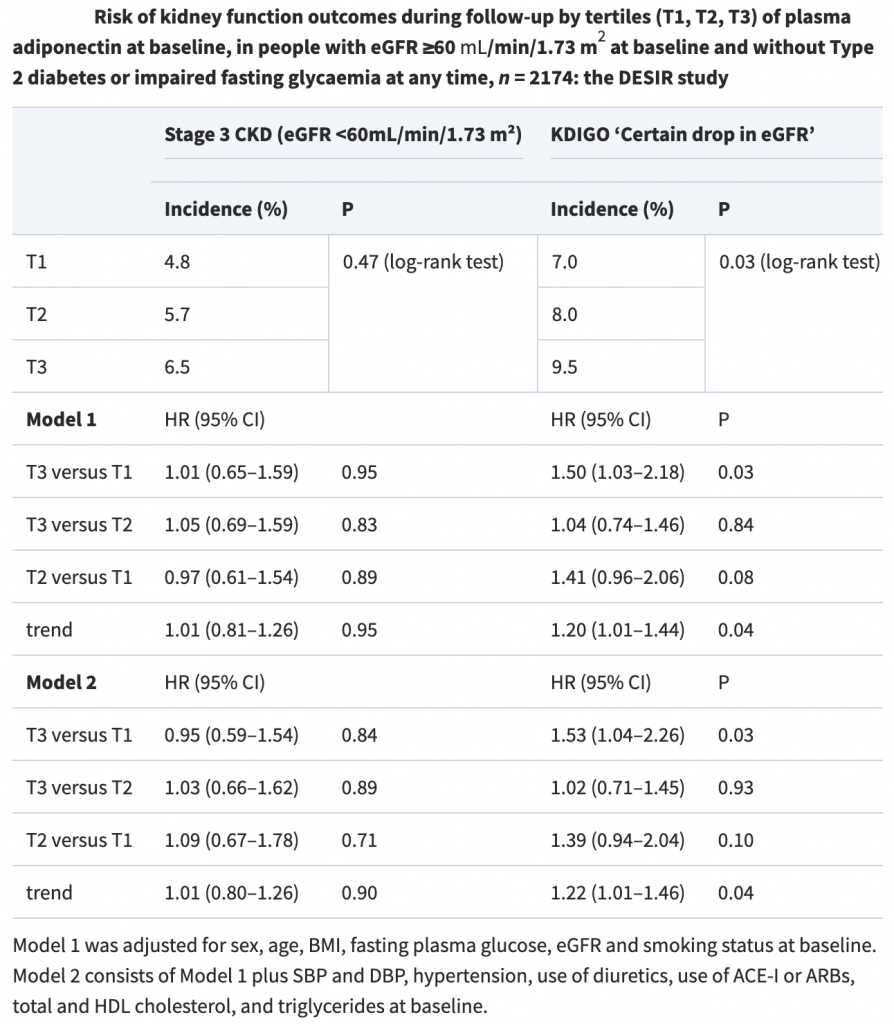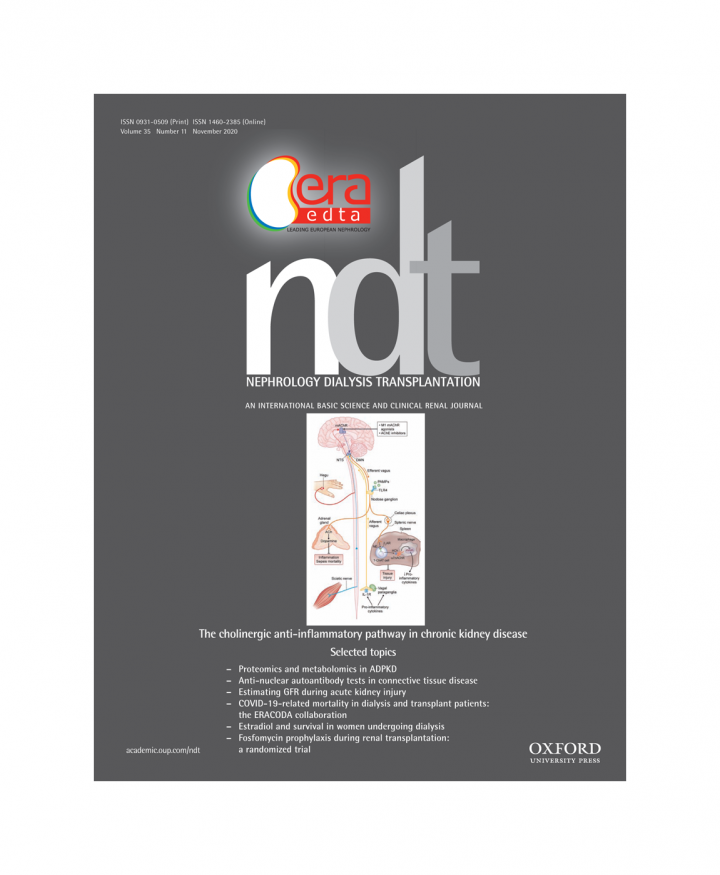Plasma total adiponectin and changes in renal function in a cohort from the community: the prospective data from the epidemiological study D.E.S.I.R
High adiponectin levels are associated with diabetic nephropathy. However, in rodent models of nephropathy, adiponectin plays a beneficial role. The relationship between adiponectin and renal function in healthy people compared with people with diabetes is not fully elucidated. To address this matter, the present study evaluated the association of adiponectin concentrations with changes in renal function in a community cohort, the D.E.S.I.R study.
Total adiponectin was assayed in fasting plasma samples from 3284 people randomly selected from the cohort.
Higher levels of adiponectin at baseline were associated with kidney function decline during a 9-year follow-up. This association was even found when people with type 2 diabetes or impaired fasting glycaemia during follow-up were excluded from the analysis.
In healthy people, the relationship between adiponectin plasma concentration and kidney function decline was similar to data in people with diabetes.
These results support the hypothesis of a deleterious effect of high adiponectin levels on kidney in humans. Thus, higher concentrations of adiponectin could be predictive of renal function decline in healthy people as well as in people with diabetes.

To read the full paper, head to the following link:





